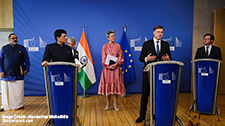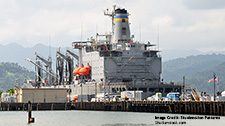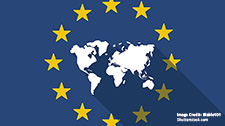Deciphering the Security Community Debate
Kirsten van Kaathoven
Several attempts have been made in recent years to revive a process towards developing more trust and reconciliation in the Euro-Atlantic and Eurasian space. But much of this debate has not been very accessible; concepts are abstract and the formats for discussion have also been less visible and interesting for media and policymakers. The search is still on for a viable approach, one that will not avoid the most controversial questions relating to conflicts, human rights and arms control, but one that will also create a process leading to more common ground in areas such as transnational threats, including the fight against drugs, organized crime, human and arms trafficking and terrorism. In order for this to happen, there will clearly need to be both a political will to prioritize and a readiness to learn from the mistakes of the past, not least with regard to Afghanistan. This policy brief seeks to give an overview of the state of play in the security community debate.
Related Publications
-
Trade, Connectivity and Supply Chains in EU-India Relations
In the decade and a half since 2007 when the EU and India first started their FTA negotiations, the world economic order has undergone a sea change. During that period, […]
-
Needed, a Framework to Protect Undersea Cables
In the data-driven world we live in, submarine cables are the arteries that connect nation-states and their people in literally every human activity, including trade, commerce, entertainment, and social interactions. […]
-
India-Japan-Philippines: A Strategic Maritime Trilateral or More?
Regional states like India, Japan, and the Philippines have been seeking cooperative solutions with other middle powers that can both counter the Chinese influence and fulfill other economic as well […]
-
What I heard in Munich: Europe gets a brutal awakening- Anna Wieslander
The recipe of the day at the Munich Security Conference (MSC) was to strengthen “the European pillar” in NATO, a concept that has been floated for many years but with […]
-
ISDP Annual Report 2023
ISDP’s Annual Report for the year 2023. We look back on 2023, a year in which tensions and conflicts captured the strategic space in ISDP’s focus areas, making headlines around […]




